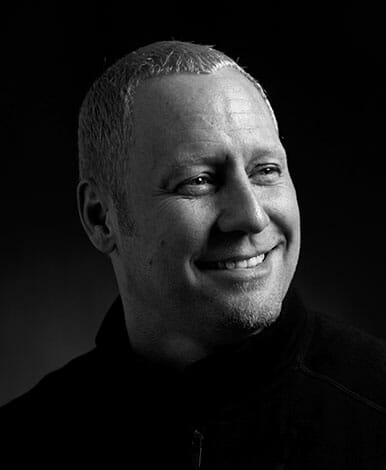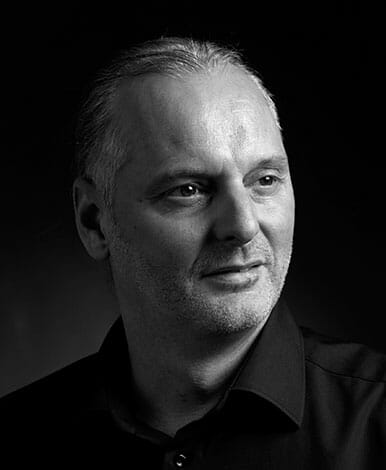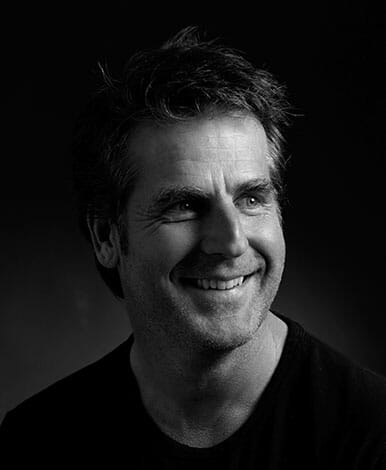Who we are
The Mafiri-Village Vision
Children in the Mafiri Village grow up in a safe and family environment, where they experience the feeling of love and respect. The children are surrounded by loving people who care for them and support them on their way to independence.
Mission of the Mafiri-Village
We are a caring family for orphaned and abandoned children. We focus on high quality of education, quality upbringing of the children, and help them to live independent lives with responsibility and compassion, to become active and successful members of Tanzanian society.
The main focus is helping girls and women. Like many places in Africa, this particular group often carry the most burden and load in society, so championing their cause can have a large ripple effect in Tanzania.

Udo Neyer
| Born in | Vandans |
| Place of Residence | Vandans |
| Occupation | Hair Dresser / Stylist |
| Marital Status | Wife and Child |
| Favourite food in Tanzania | Chipsy kuku |
| Favourite food at home | Bianca’s Risotto |
Interview mit Udo Neyer
Why did you get involved in this social project?
It is my concern to help people who are not as lucky as we are to have been born and allowed to live in a functioning and social place.
But why an own project?
To take responsibility, to move, to change.
Why social engagement in Africa/Tanzania?
Africa, for me is the the cradle of mankind, my second home; the people, the nature, this uniqueness touch me very much.
Why not something more regional or closer to home?
It is because we already have so many social institutions.
What has been your best/most memorable experience so far in connection with the two projects in Tanzania?
To look into the grateful, beaming eyes of the people, especially the children.
What do you most like about working for this project?
To help children who cannot help themselves, namely parentless, abandoned or disabled children.
What don’t you like?
Corruption
What do you personally hope for from the project?
That the children can later shape their own lives and be active members of Tanzanian society.
What are your hopes for the project?
That one day it will be continued and carried on by locals.
What is poverty for you?
Poverty is having a lack of essentials like food, clothing, housing, education, attention and care.
What does home mean to you?
Home for me is where my roots are and where my family is.
Have you ever thought about emigrating?
Yes
Travel trips to Tanzania:
Serengeti, Ngorongoro-Crater, Zanzibar.
Your favourite place in Tanzania?
At the orphanage in Moshi with the children.
Book Tips:
Reiseführer Tansania „Know how“, Book from Christian Felber, z. B. „Gemeinwohl Ökonomie“, „Dead Aid“ from Dambisa Moyo.
Anything else you’d like to share:
“If a lot of little people in a lot of little places do a lot of little things, they can change the face of the world. ” I don’t remember who this quote is from – but it says it ALL for me!!!

Hanno Breitfuss
| Born in | Hall |
| Place of Residence | Schaan |
| Occupation | Worker |
| Marital Status | Big! (5 Children) |
| Favourite food in Tanzania | Pizza, anything local you can not actually eat |
| Favourite food at home | many… |
Interview mit Hanno Breitfuss
Why did you get involved in this social project?
Because my neurons are still working.
But why an own project?
Realizing own ideas as well as direct contact to the people.
Why social engagement in Africa/Tanzania?
Africa is the continent that really got screwed over, we still have a lot of debt there! We deliberately chose Tanzania because it combines a lot of what Africa means to us, and we thought it had been quite properly governed since independence in 1961. Unfortunately, we had to learn the hard way that after the one-and-only Julius Nyerere, political leaders became worse and worse.
Why not something more regional or closer to home?
With us? I believe we live in a very well-developed welfare state, and I am proud of that. If you need help, you can get it here. I do not think much of the projects running here, such as “Light into Darkness”. There, it’s often just about the cherry on top, not basics.
What has been your best/most memorable experience so far in connection with the two projects in Tanzania?
Can’t name a single one, there are so many special moments.
What do you most like about working for this project?
The good feeling of doing something right.
What don’t you like?
The fact of not having enough time.
What are your hopes for the project?
That sooner or later the project will stand on its own feet and finance itself from the self-generated income, and that it will become independent of monetary donations from the West.
What is poverty for you?
Decent food, clothing, shelter and education – if any of these are lacking, that is poverty to me.
What does home mean to you?
The place where chance has thrown you and for whose sake far too many wars have been fought.
Have you ever thought about emigrating?
Previously, all the time, now less and less. When the hustle and bustle is over, it’s actually quite good to live here.
Travel trips to Tanzania:
Ngorongoro-Crater, Serengeti, Malawisee, Zanzibar, Indian Ocean, Mount Meru, Kilimanjaro, East African Rift Valley, Bagamoyo.
Book Tips:
„Reiseführer Tanzania“ from Jörg Gabriel, „Dead Aid“ from Dambisa Moyo, „Ach, Afrika: Berichte aus dem Inneren eines Kontinents“ from Bartholomäus Grill.

Wolfgang Schmieder
| Born in | Berlin |
| Place of Residence | Feldkirch |
| Occupation | Architect, Fischer Schmieder Architekten |
| Marital Status | No Children |
| Favourite food in Tanzania | Steak, well done |
| Favourite food at home | Steak, rare |
Interview mit Wolfgang Schmieder
Why did you get involved in this social project?
I want to make a difference with the skills and knowledge I have acquired, to do something good. We live in an affluent society. The products I develop can be described as luxurious. The project in Tanzania is different. Here it is a matter of very rudimentary and tangible things: the construction of weather-protected, humane living spaces, organising the water and electricity supply etc. , in other words, the very basic necessities of life that we take for granted. With simple means and a little creativity you can achieve a fundamental improvement in the quality of life for many people. I find that very enriching.
But why an own project?
Most development aid projects lack transparency. One does not know what exactly happens to the donated money and what is it used for or how it is used, that is, whose goals are actually being pursued? This project is different. I know the two initiators Hanno and Udo well, and their trustworthiness is absolute. With them I have the certainty that every cent really benefits the people and especially the children there. I also get to help shape the paths and goals, which is important to me.
Why social engagement in Africa/Tanzania?
When I joined, these parameters were already in place. The project could have and would have been in many other places in the world.
Why not something more regional or closer to home?
Of course there is suffering and injustice everywhere in the world, also here with us. But the problems in the developing countries are incomparably different, the conditions much more serious and inhumane than here. The consequences are already being felt here in Europe, for example. in the form of the refugee crises from the Mediterranean. Our social system bears a considerable share of the responsibility for the situation that prevails in these countries, so I also see it as a kind of moral duty to get involved there as far as I can.
What has been your best/most memorable experience so far in connection with the two projects in Tanzania?
I witnessed a severely traumatized child being taken off the streets and placed in the care of the orphanage. The girl, about 10 years old, was sent by her blind grandmother to beg in the city. Her condition was pitiful, the expression on her face apathetic, her gaze absent. Since she didn’t speak, they assumed she was mute. But the very next day she was playing with her new siblings, chatting and smiling. For me, that was an unforgettable smile – this girl was given a new life.
What do you most like about working for this project?
The awareness that I can make a direct difference with my work and pass on my know-how.
What don’t you like?
The realization this is but a drop in the ocean.
What do you personally hope for from the project?
A broader horizon and a deeper understanding of the problems and their causes in this actually oh-so rich country.
What are your hopes for the project?
In the short term, that the project will overcome the problems and hurdles that will come its way. In the medium term, that a few forgotten children get a future again and the chance for a decent life. In the long run, that this project will make a small contribution to making this beautiful country what it could be.
What is poverty for you?
Poverty is not a question of ownership. Poor is certainly the one for whom it is not possible to live under humane conditions. This includes sufficient food, a roof over one’s head, social contacts and the individual right to dignity and freedom.
What does home mean to you?
I have a hard time with that term. The term “home” is closer to my heart. It has something to do with feeling good and with safety. It is less attached to a particular place than to a feeling.
Have you ever thought about emigrating?
Not just once.
Travel trips to Tanzania:
The National Parks, in particular the Ngorongoro-Crater.

